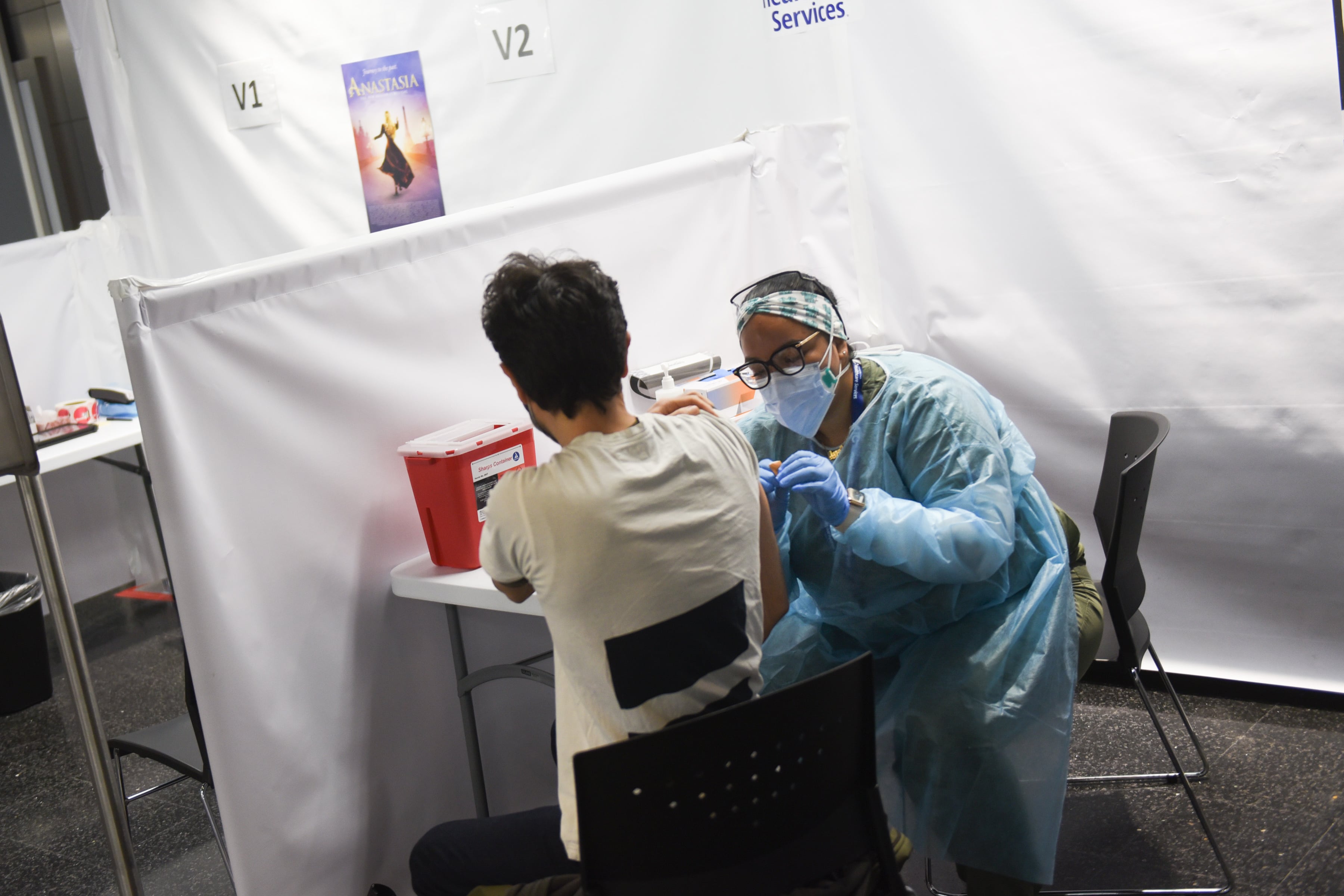New York City will agree to keep teachers with vaccine exemptions on the job after their union filed a labor complaint over the issue, Mayor Bill de Blasio said Wednesday.
But negotiations continue over what will happen to teachers who aren’t vaccinated and don’t have a religious or medical exemption.
There are just days to go until the nation’s largest school system is set to begin classes on Sept. 13, without an option for students to learn virtually. All education department employees — including almost 80,000 teachers — are required to be vaccinated. They have until Sept. 27 to receive their first dose.
The United Federation of Teachers, or UFT, filed a complaint last week with the Public Employment Relations Board saying the city refused to accommodate teachers who can’t be vaccinated because of medical or religious reasons. Instead, the city had proposed having those staff members use up sick time and vacation time before being put on unpaid leave, forcing them to lose their benefits.
On Wednesday, de Blasio said at a press conference that the city had changed course.
“Those folks will continue to work for us in some capacity, in some location. We’re going to work that through. But those cases will be honored,” de Blasio said.
Still, many details are undecided, including the approval process for such exemptions and the jobs that those staffers will take on.
“The city has backed off its initial position that teachers with medical and religious exemptions to the vaccine be removed from payroll. But there are still many details of how these exemptions will be applied — and how other teachers unwilling to take the vaccine will be treated — that are now being worked through with the arbitrator,” according to a statement issued by Michael Mulgrew, president of the union.
Vaccine exemptions are likely to be rare, as many major religious leaders approve of them. Experts say that medical reasons for foregoing the shots are also narrow, but can include cases where someone is allergic to ingredients in the vaccine.
De Blasio said the city and union are in “intense” negotiations over what will happen to school staff who refuse the shots for other reasons.
“We’re obviously hoping to resolve things,” the mayor said. “But not every single one has been settled yet and we obviously have to do that very, very quickly.”
It’s unclear what the city or union have proposed would happen if teachers refuse to be vaccinated. The union did not respond to questions about whether its leaders would support removing those staffers from the payroll. Los Angeles and Chicago, the second and third largest school districts behind New York City, have made the vaccines mandatory for teachers to continue working.







